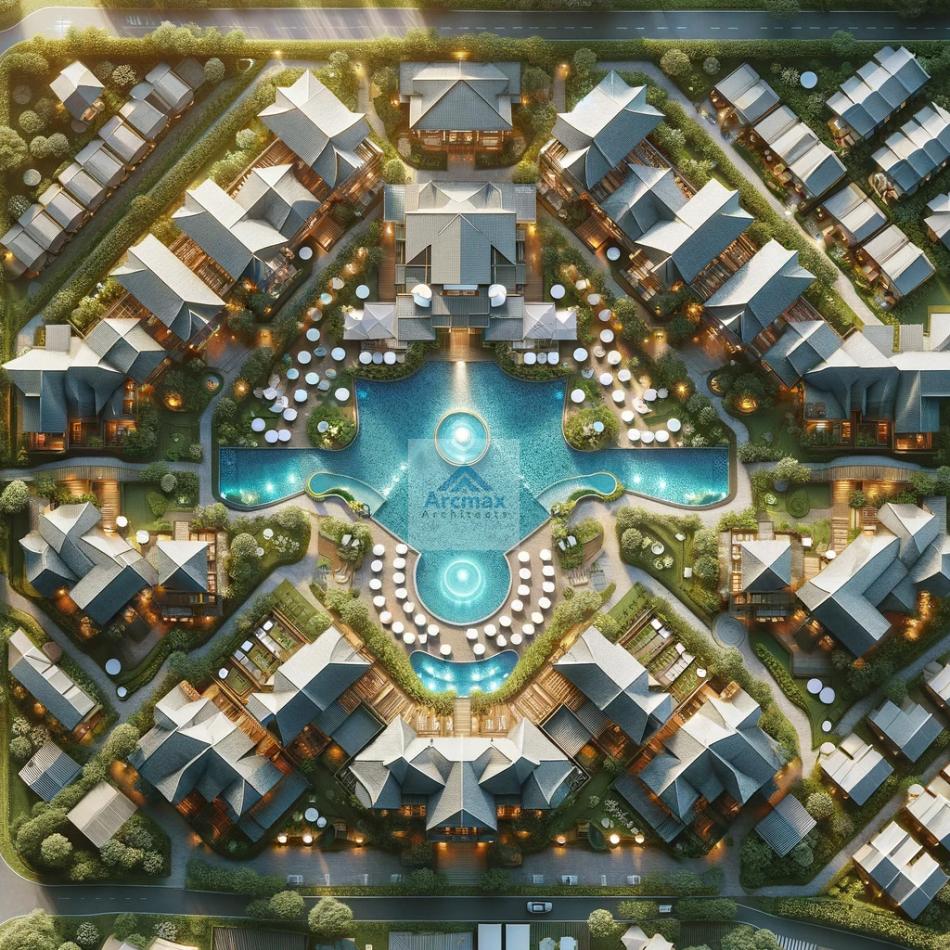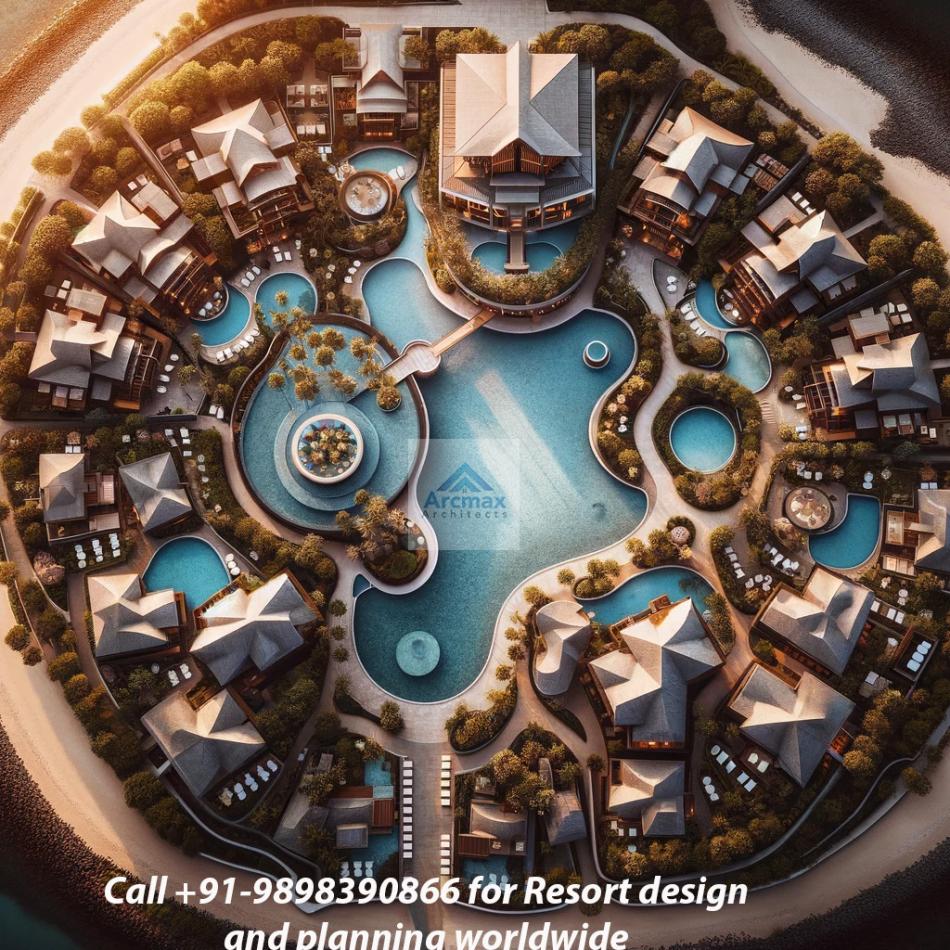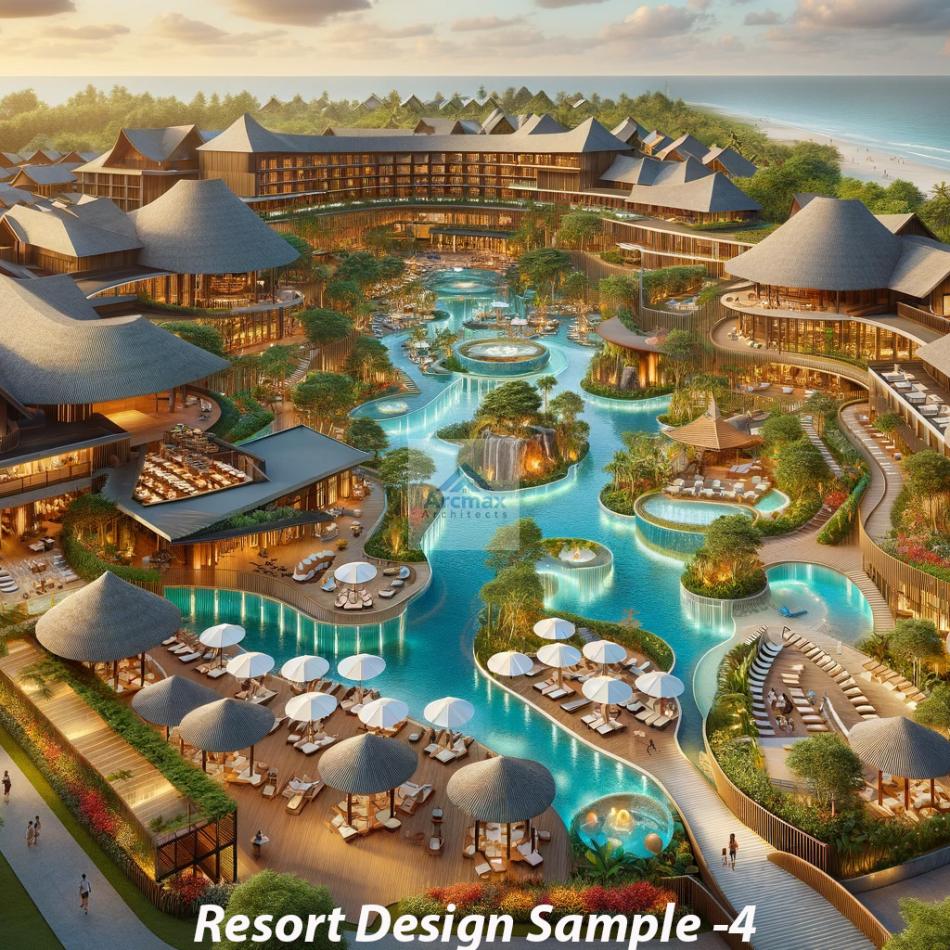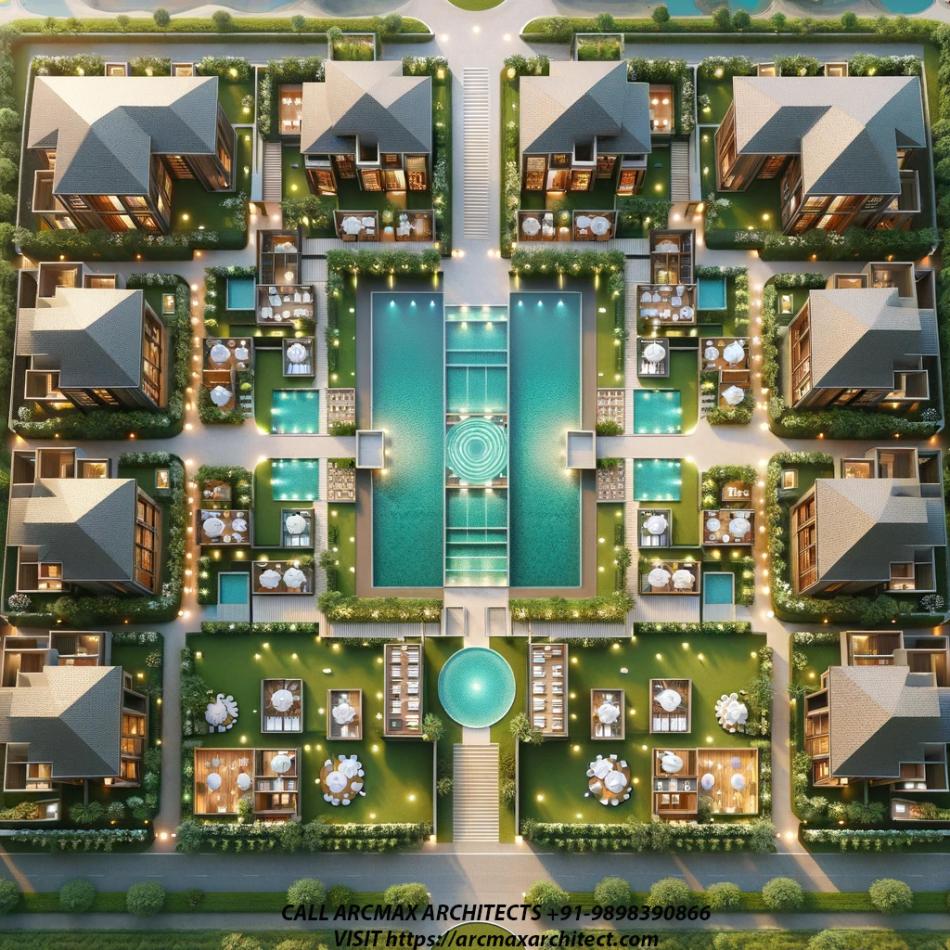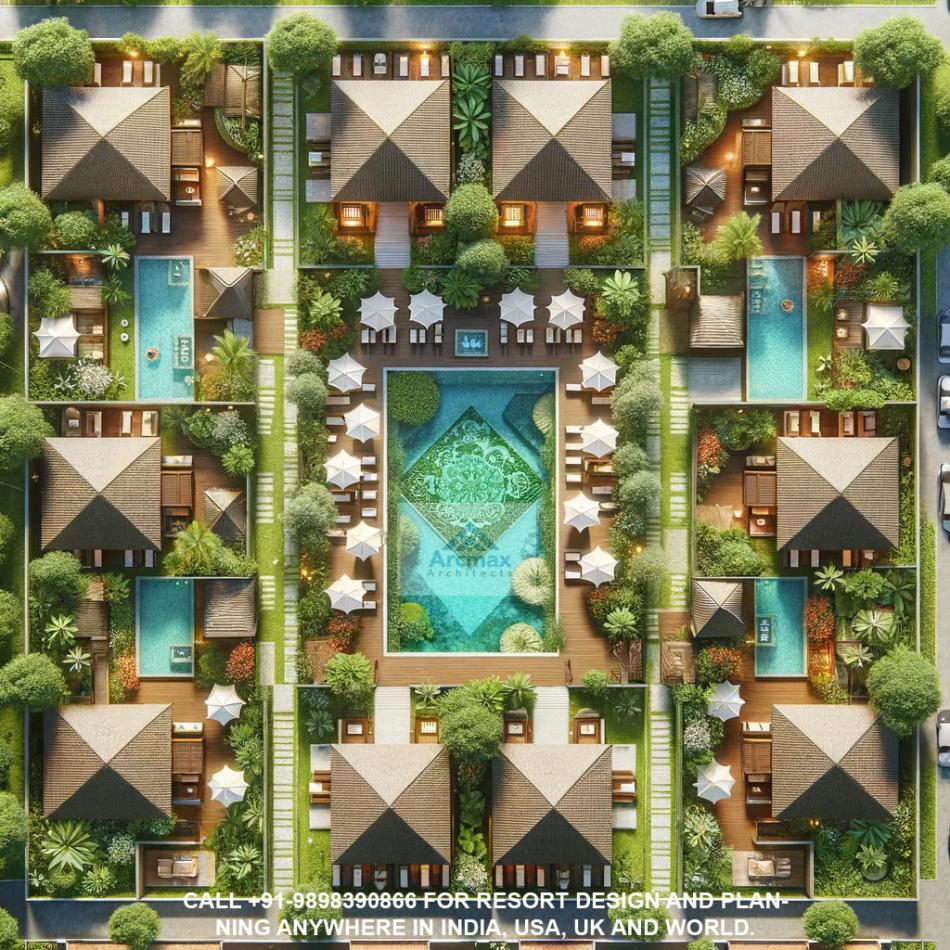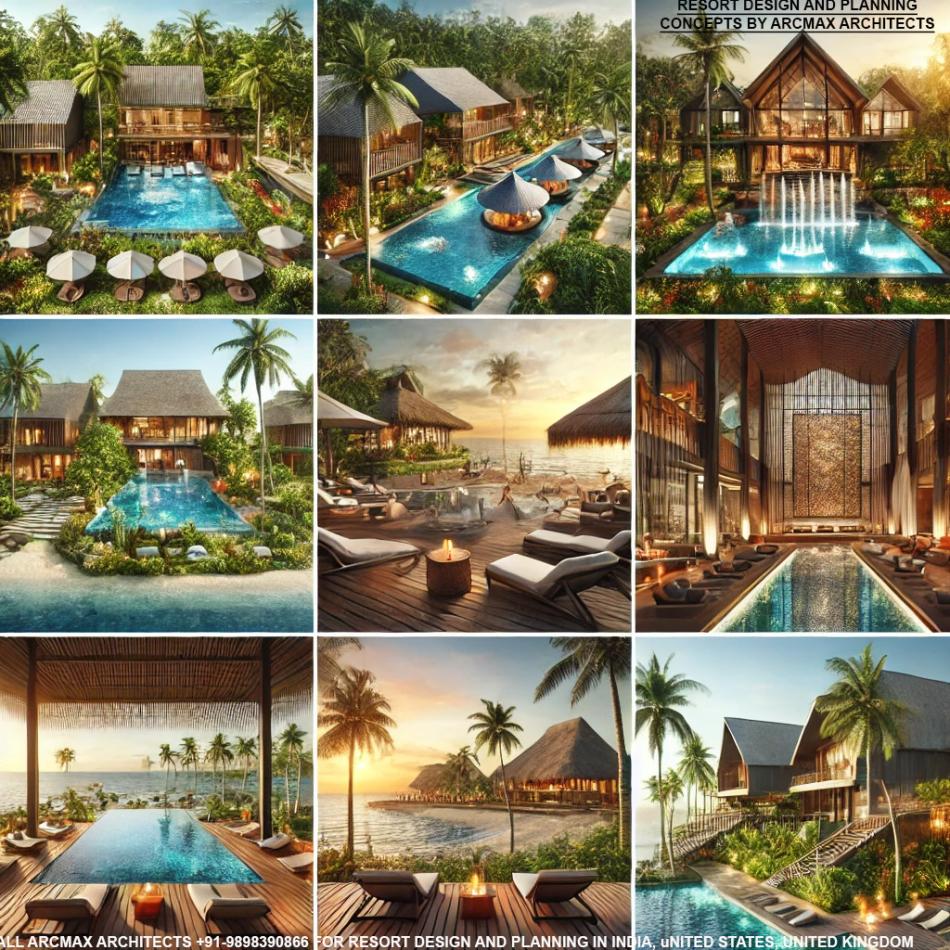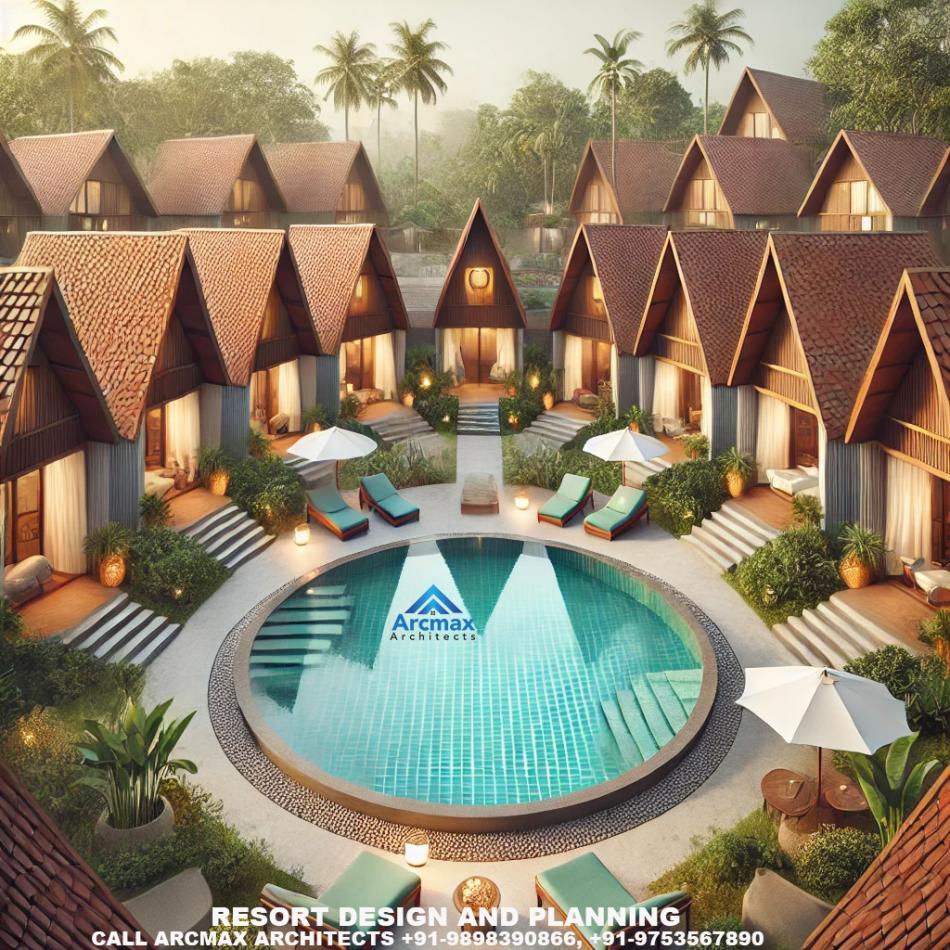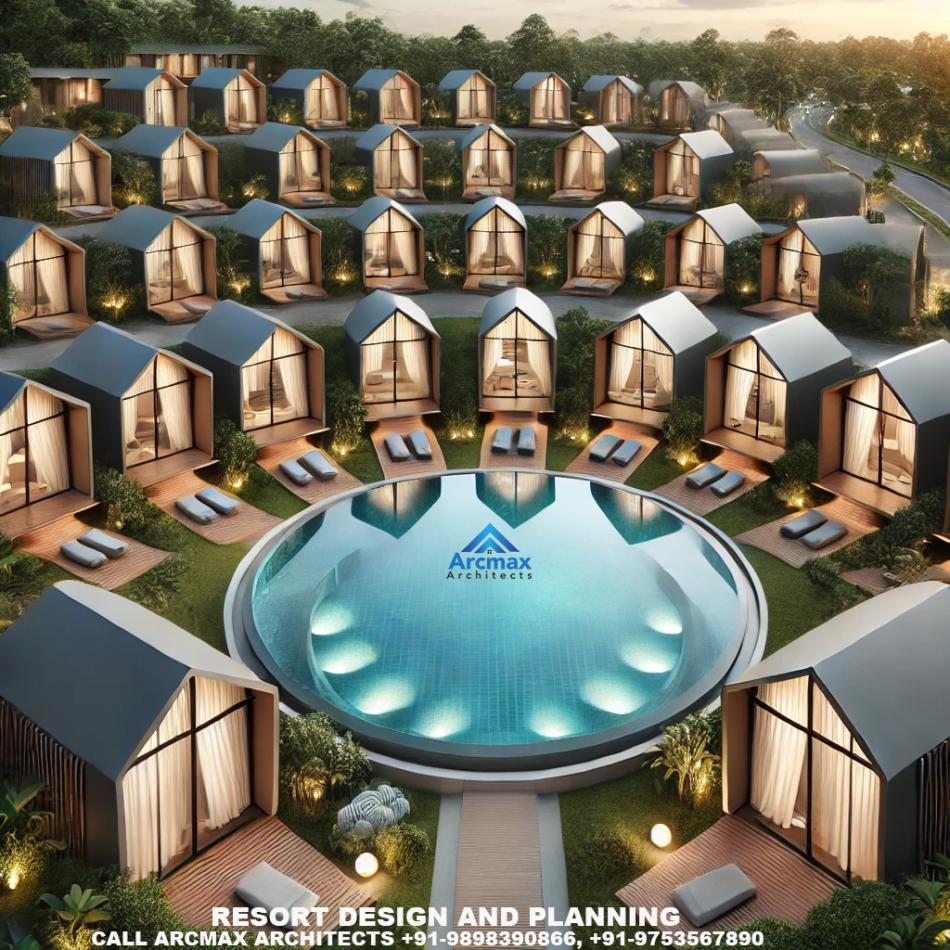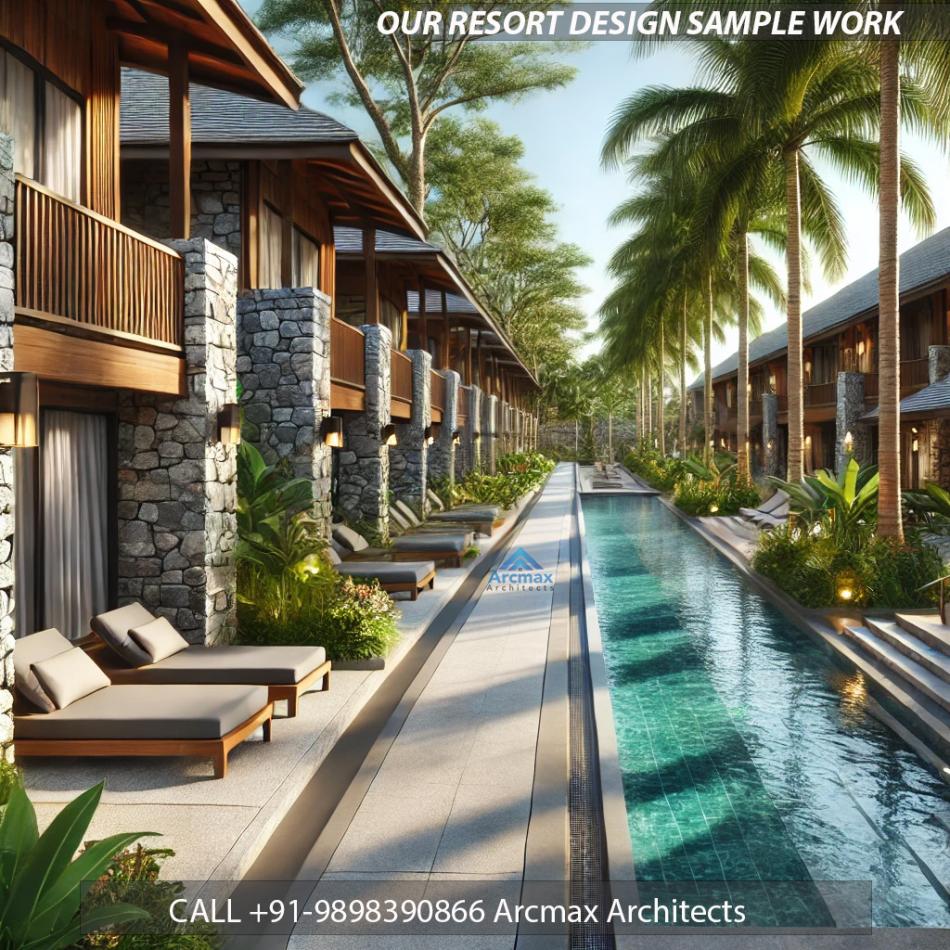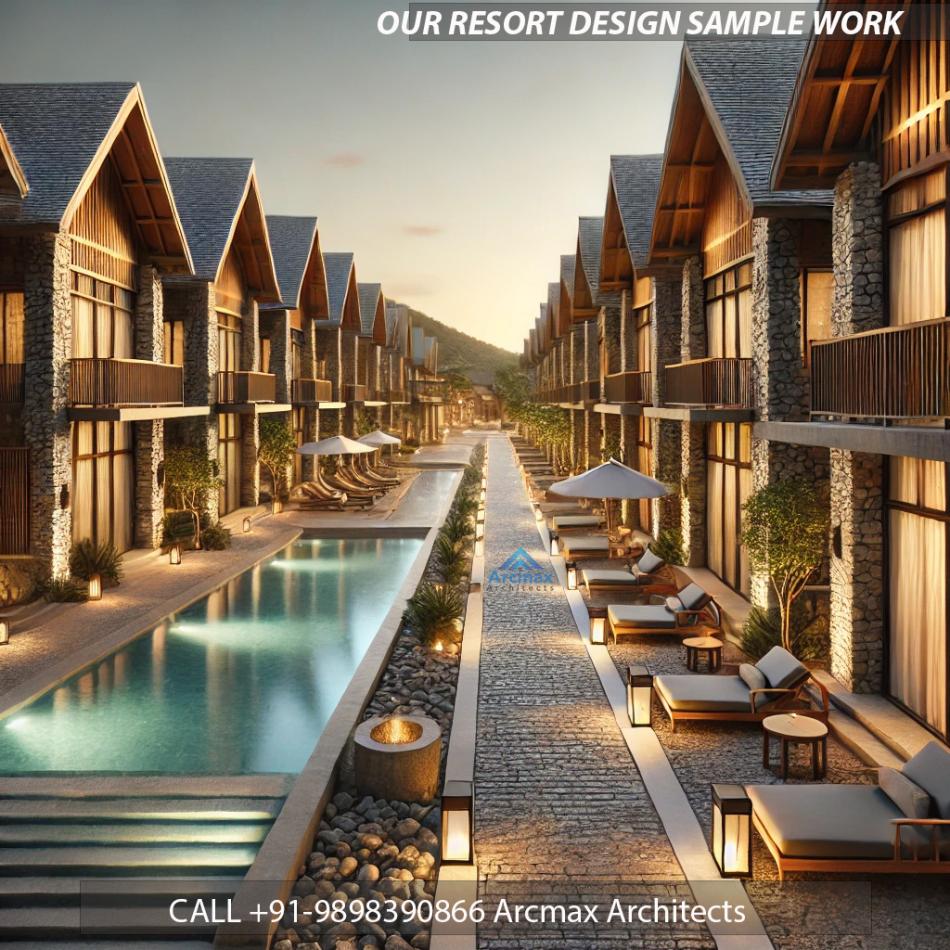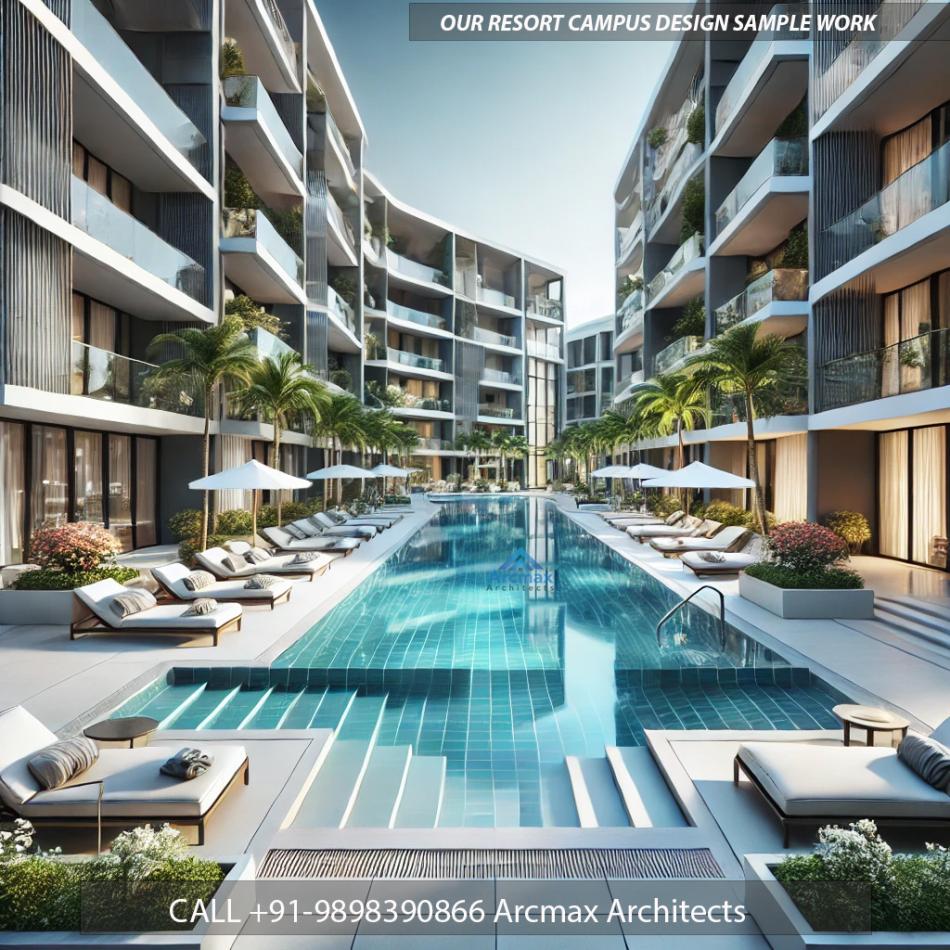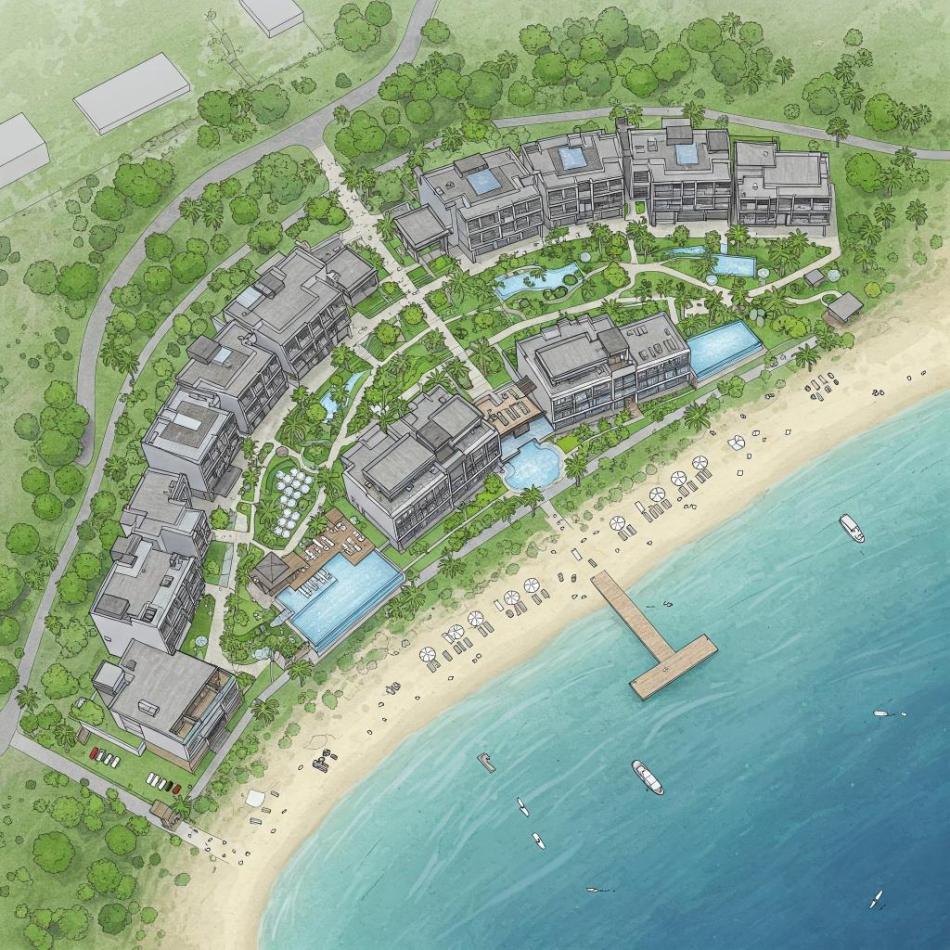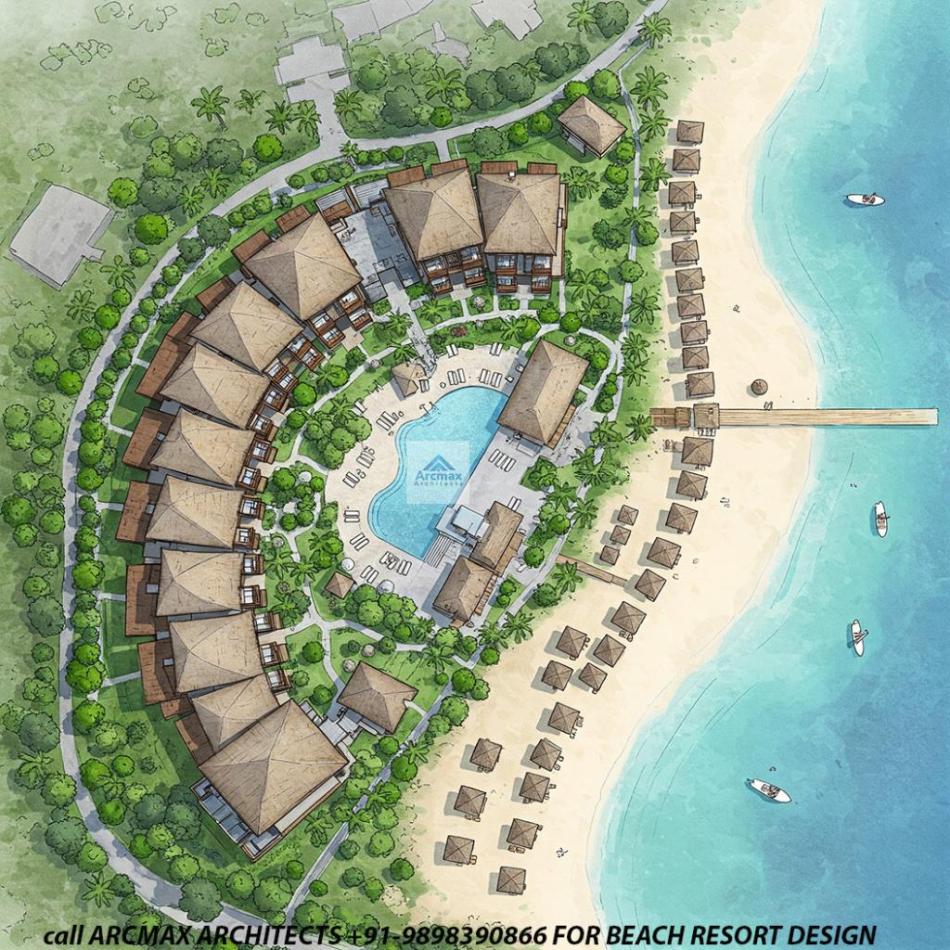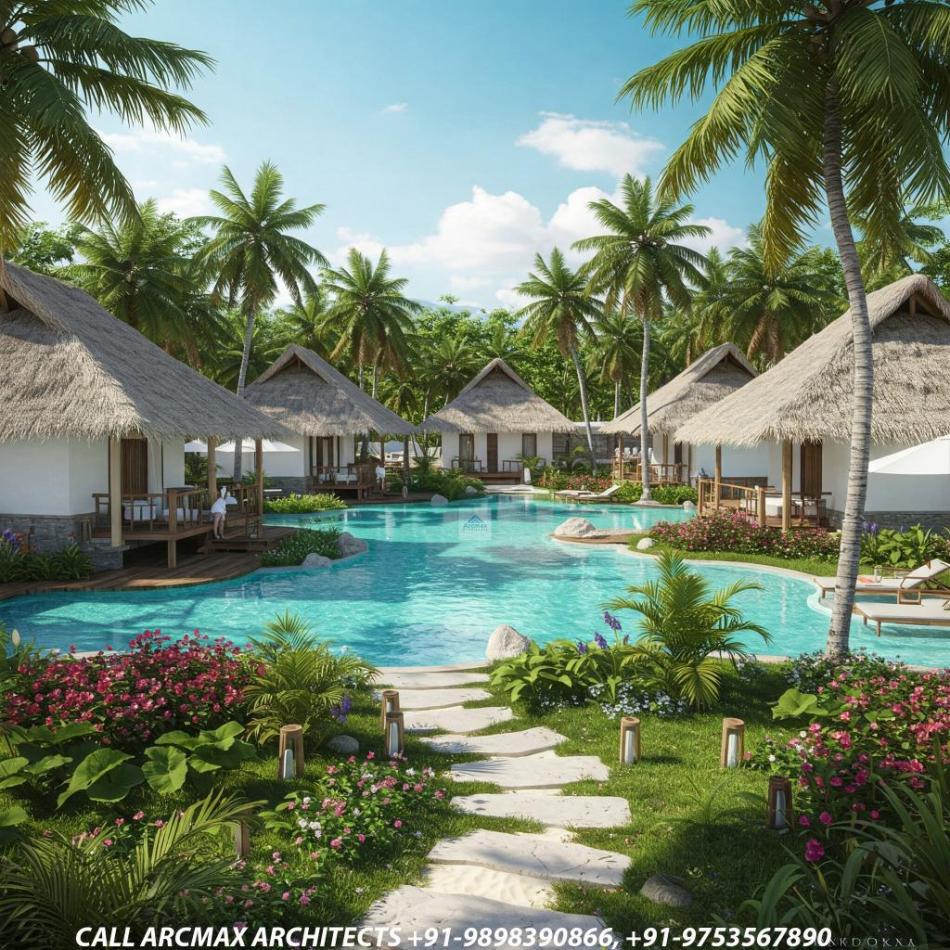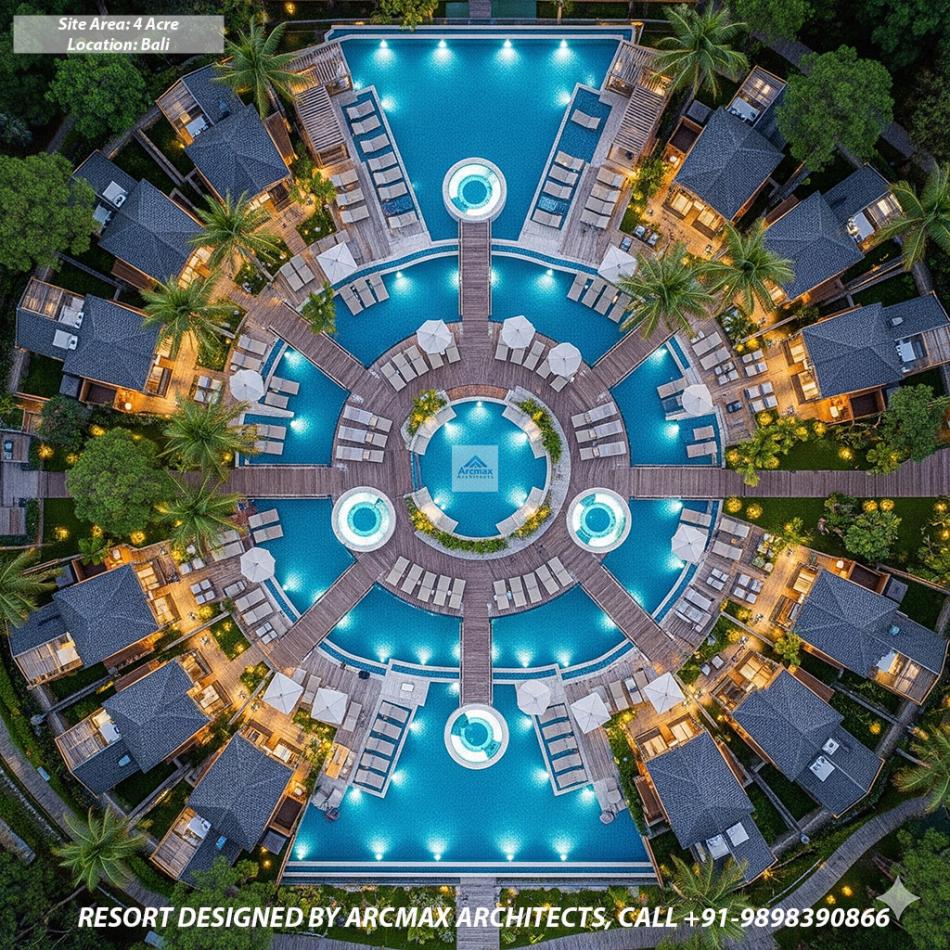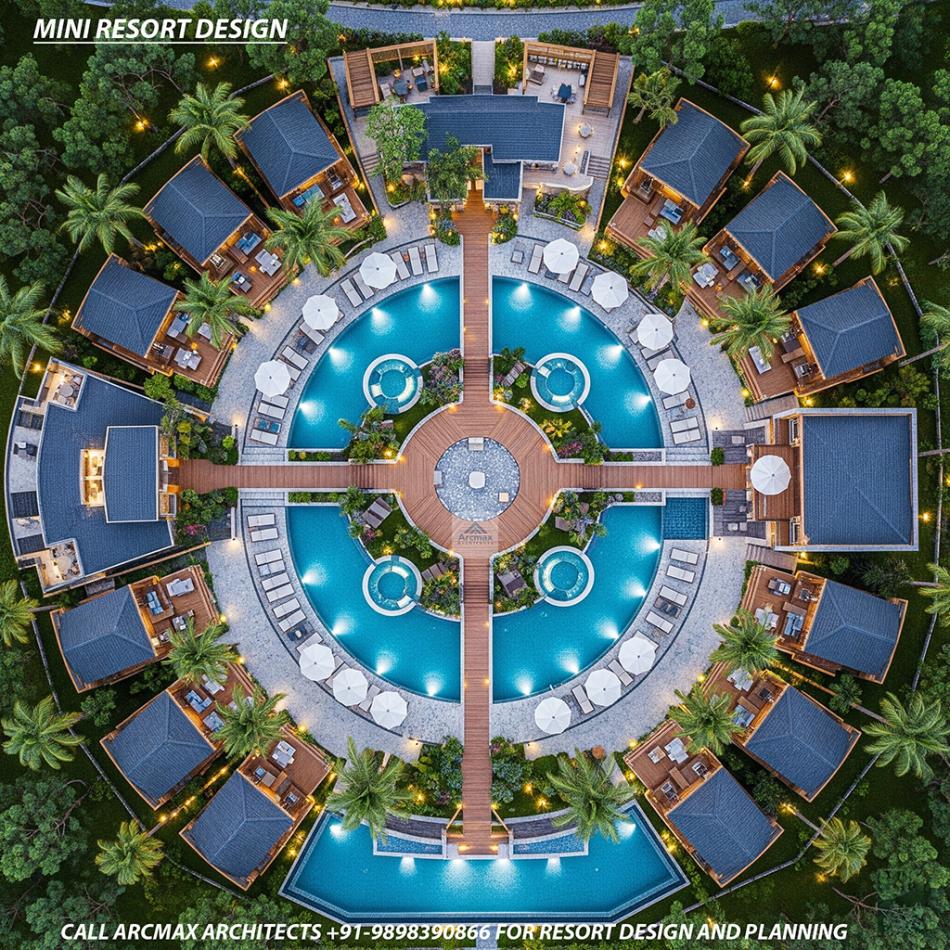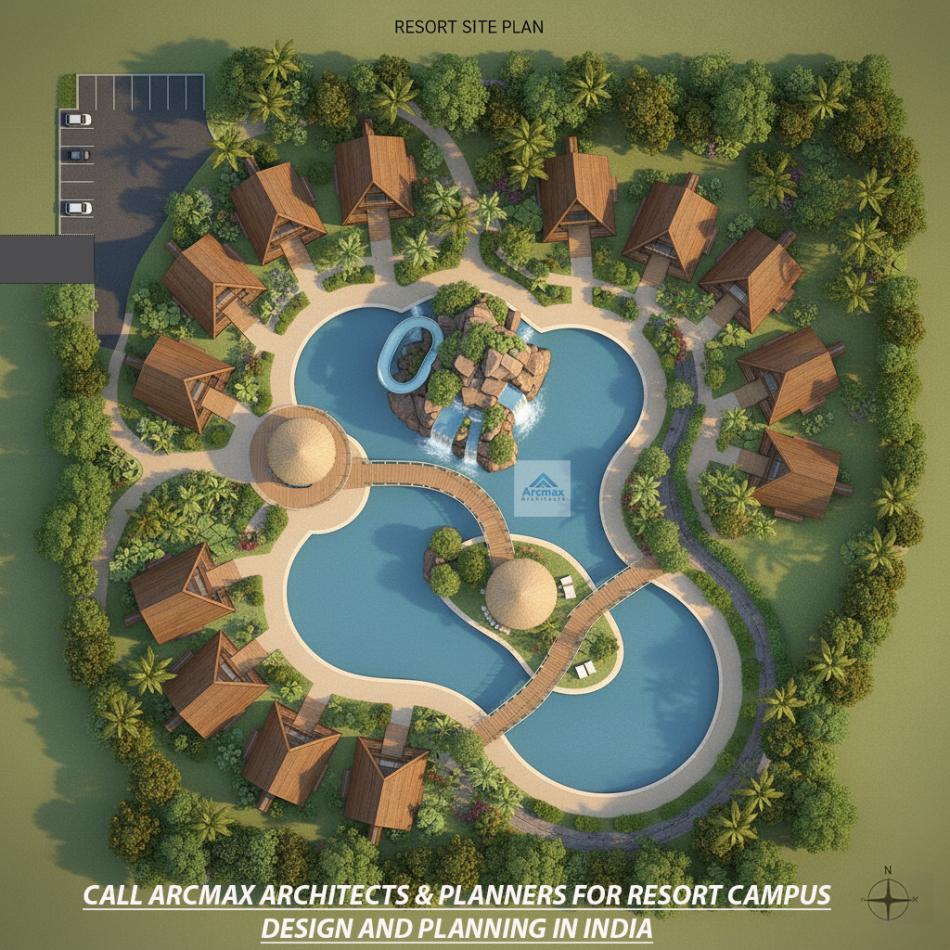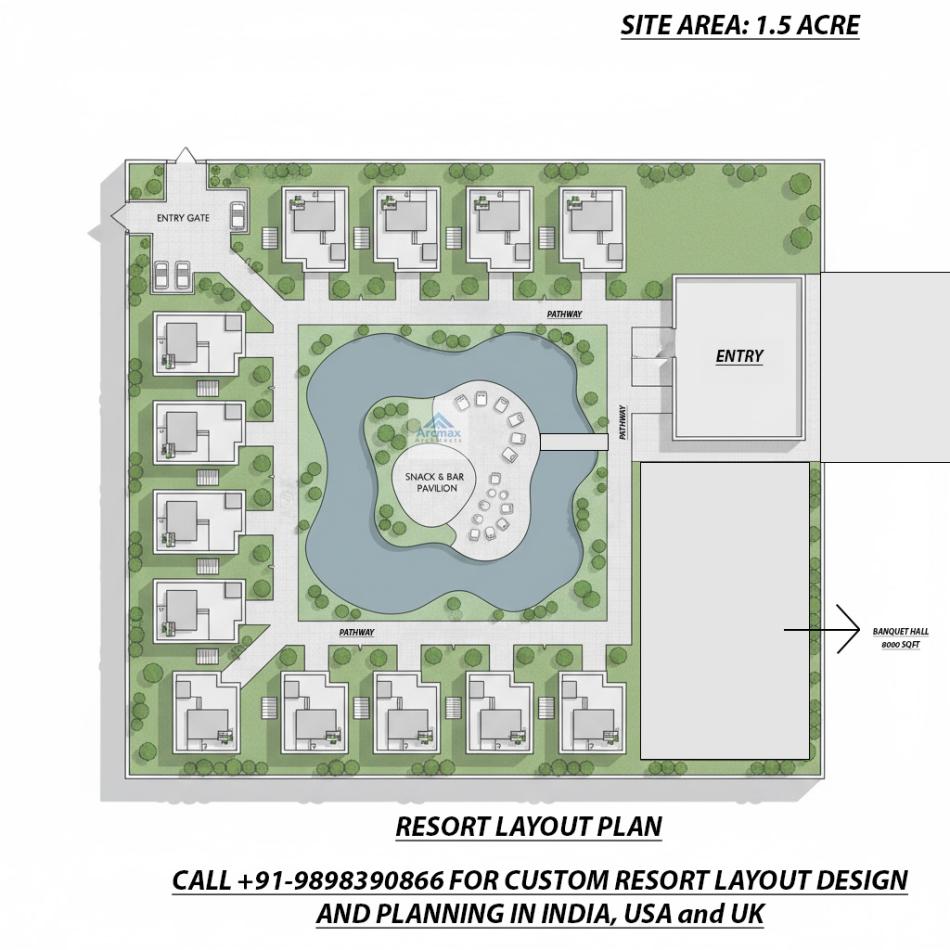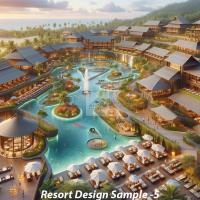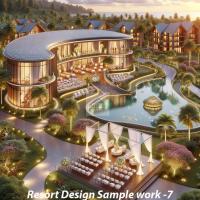Bakeri City, Pincode: 380015 Ahmedabad, Gujarat, India,
244 Madison Avenue, New York, United States
Our Client


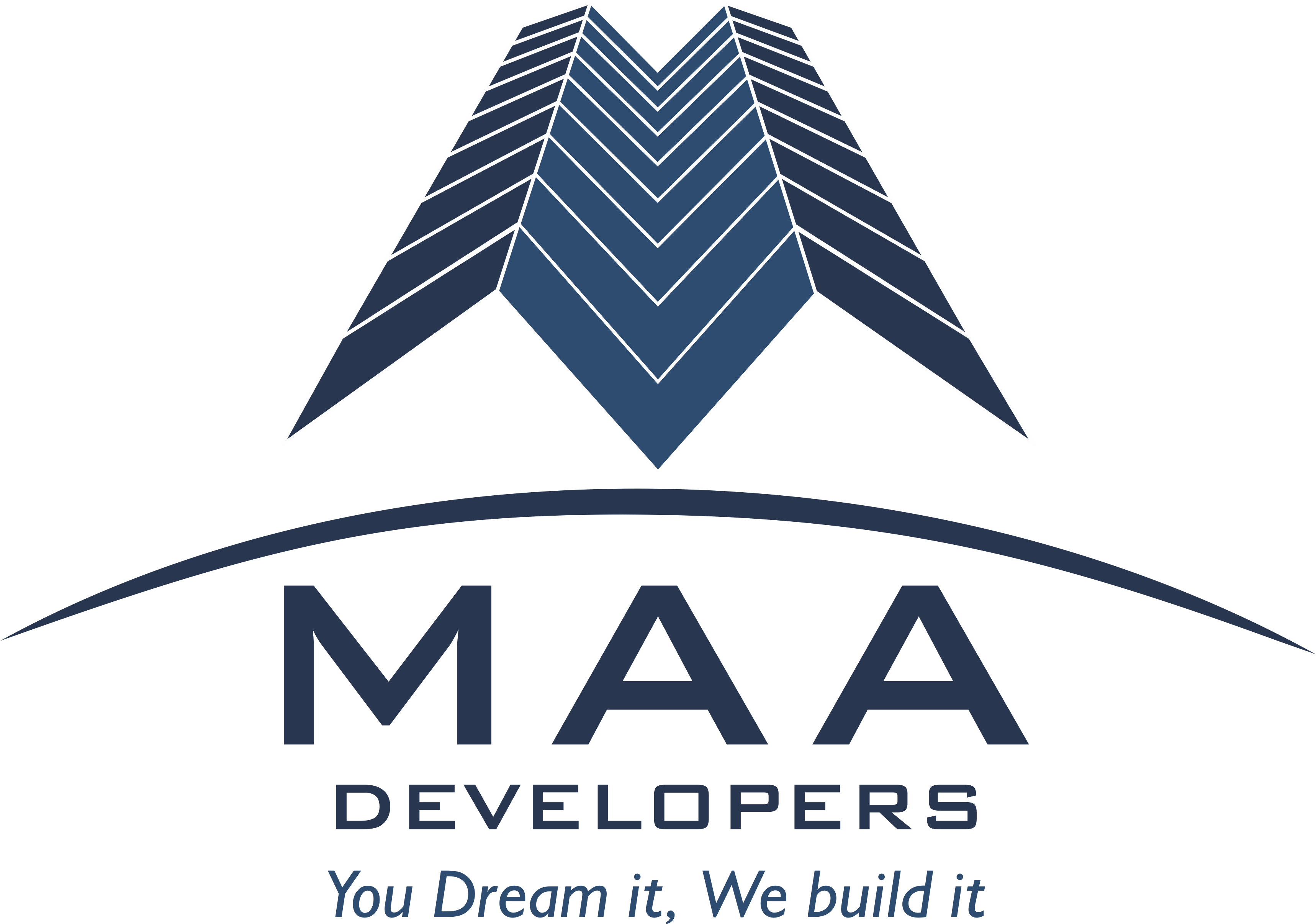



Best Architects for Hospitality design in India, USA and UK
ArcMax Architects is renowned as the best in hospitality design across India, the USA, and the UK. Our team of expert architects and designers is dedicated to creating luxurious and functional spaces that elevate the guest experience. From opulent hotels and boutique inns to sprawling resorts and urban retreats, we tailor each project to reflect the unique character and needs of our clients. With a focus on innovation, sustainability, and aesthetic excellence, ArcMax Architects ensures every hospitality project stands out in the competitive market. Trust us to deliver world-class designs that redefine comfort and sophistication in the hospitality industry
Hospitality design encompasses the conceptualization, planning, and creation of spaces that provide guests with comfortable, functional, and aesthetically pleasing environments. It is a multifaceted discipline that combines elements of architecture, interior design, landscape architecture, and environmental psychology to craft spaces that not only meet the practical needs of guests but also enhance their overall experience. Hospitality design is pivotal in hotels, resorts, restaurants, spas, and other venues where the primary goal is to provide service and experiences that encourage return visits. Here’s a detailed overview of the principles and considerations that underpin effective hospitality design:
1. Guest Experience and Comfort
The core of hospitality design is the enhancement of guest experience and comfort. Every aspect of the design, from the layout and the flow between spaces to the choice of materials and lighting, is considered through the lens of the guest's comfort and convenience. Designers aim to create welcoming, comfortable environments that make guests feel valued and pampered.
2. Functionality and Efficiency
While aesthetics are important, functionality and efficiency are equally crucial in hospitality design. Spaces must be designed to accommodate the operational needs of the venue, ensuring that staff can provide efficient and seamless service. This includes practical considerations such as the layout of the kitchen and dining areas in a restaurant, the flow of the reception and common areas in a hotel, and the accessibility of facilities and amenities.
3. Aesthetics and Theme
Hospitality spaces often utilize a theme or aesthetic concept to create a unique and memorable environment. This could be influenced by the location’s cultural context, historical background, or a specific design theme chosen by the designers. A cohesive aesthetic theme helps to create an immersive experience for guests, contributing to the venue’s identity and branding.
4. Sustainability and Environmental Responsibility
Sustainability is an increasingly important aspect of hospitality design, with guests and operators alike valuing eco-friendly practices. This includes the use of sustainable materials, energy-efficient lighting and HVAC systems, water conservation measures, and designs that minimize environmental impact. Sustainable design not only reduces operational costs but also aligns with the growing consumer demand for environmentally responsible businesses.
5. Flexibility and Adaptability
Hospitality spaces must be designed with flexibility and adaptability in mind to accommodate different events, changing guest preferences, and evolving operational requirements. This can involve modular furniture, multi-purpose spaces, and design elements that can be easily updated or reconfigured.
6. Technology Integration
Modern hospitality design seamlessly integrates technology to enhance the guest experience and operational efficiency. This includes everything from wireless internet access and smart room controls to digital check-in processes and interactive entertainment systems. Technology should be integrated in a way that is intuitive and enhances, rather than detracts from, the guest experience.
7. Safety and Accessibility
Ensuring the safety and accessibility of all guests is a fundamental consideration in hospitality design. This includes compliance with health and safety regulations, the incorporation of accessible design features for guests with disabilities, and the thoughtful placement of emergency exits and safety equipment.
8. Local Culture and Environment
Incorporating elements of the local culture and environment can greatly enhance the uniqueness and appeal of a hospitality venue. This can involve using locally sourced materials, showcasing local art and craftsmanship, and designing spaces that highlight the natural beauty of the surrounding environment.
9. Branding and Identity
Finally, hospitality design plays a key role in expressing the brand and identity of the venue. Every design element, from the logo and signage to the uniforms of the staff, should reflect and reinforce the brand’s values and personality, contributing to a strong and coherent brand image.
Effective hospitality design requires a careful balance of aesthetic appeal, practical functionality, and guest comfort. By focusing on these principles, designers can create spaces that not only meet the needs of guests and operators but also provide memorable experiences that encourage loyalty and repeat visits
Want a Quotation please fill the form
- Resort Master Planning
- Hospitality Design
- Resort Landscape Architecture
- Environmental and Sustainable Design
- Cultural and Thematic Resort Design
- Restaurant and Retail Design
- Waterfront and Beachfront Development
- Luxury and Exclusive Resorts
- Eco-Resorts and Retreats
- Adventure and Sports Resorts
- Heritage and Restoration Projects
- Resort Architecture Design


